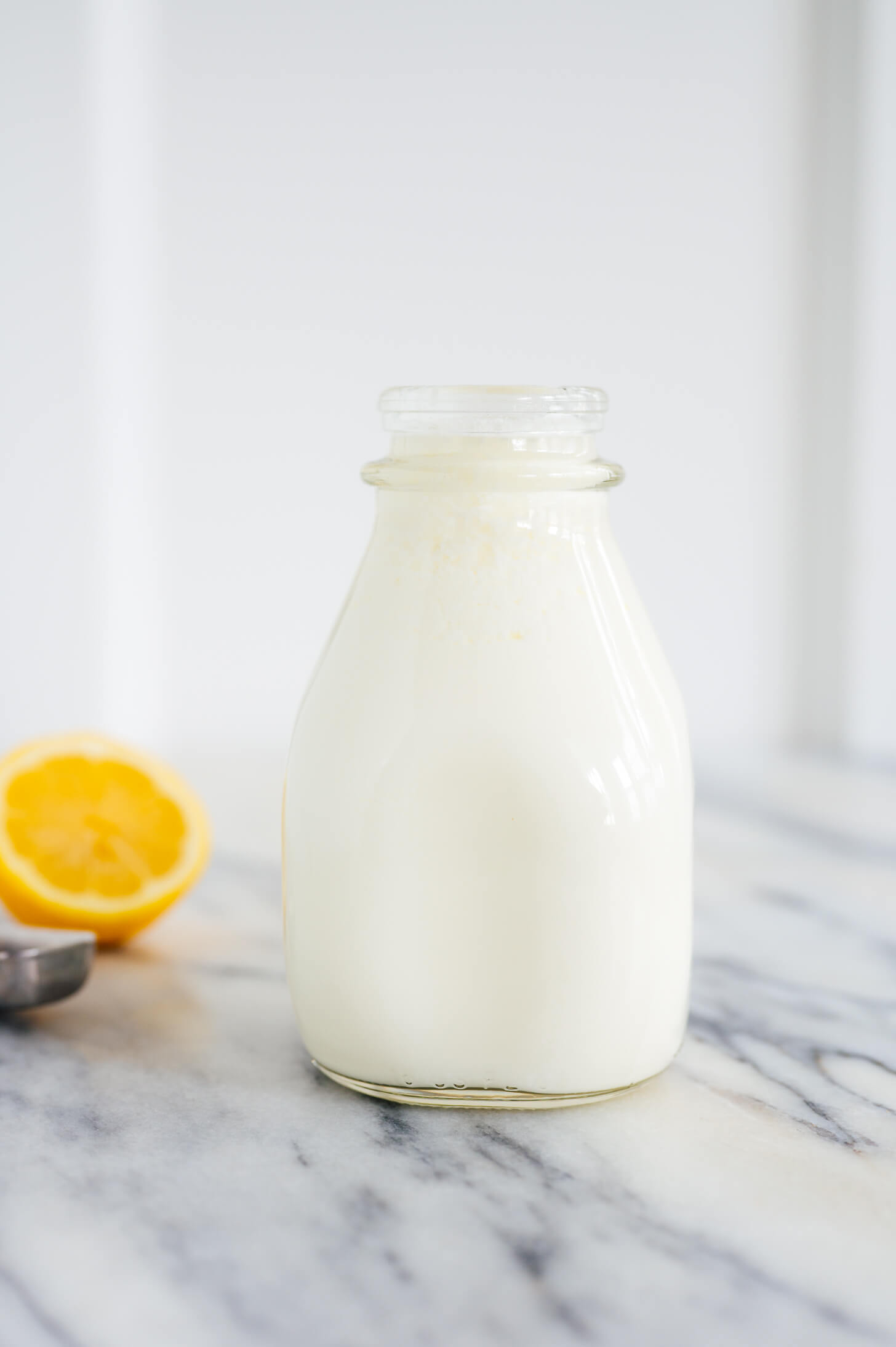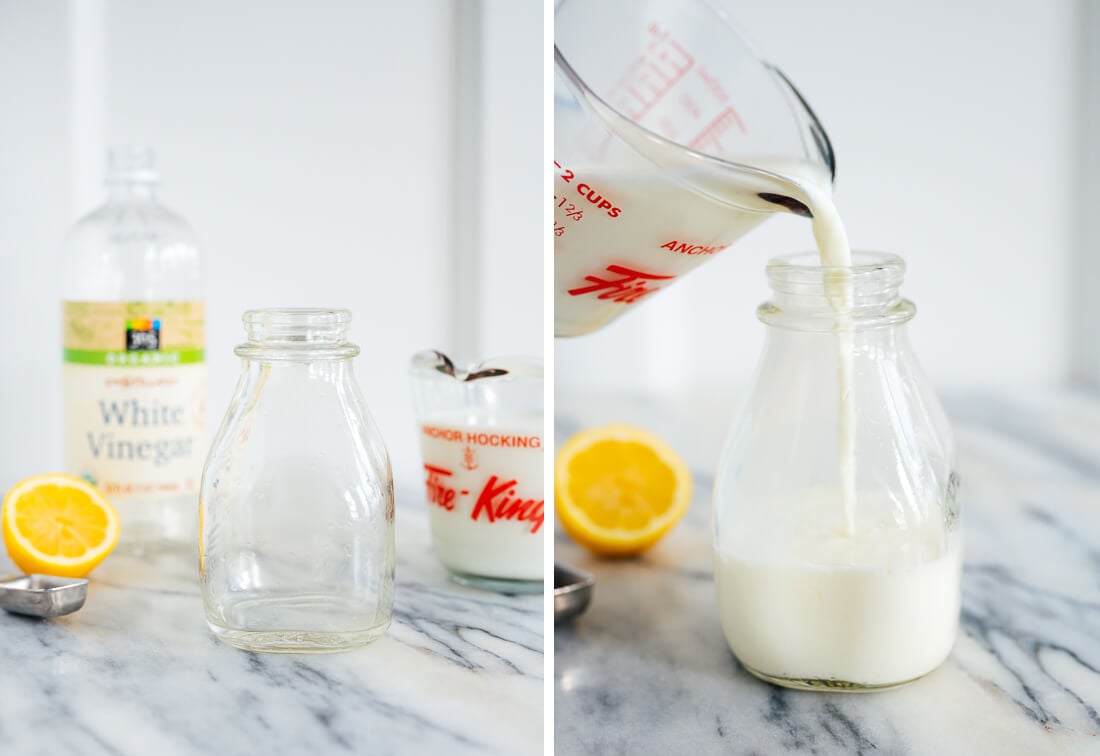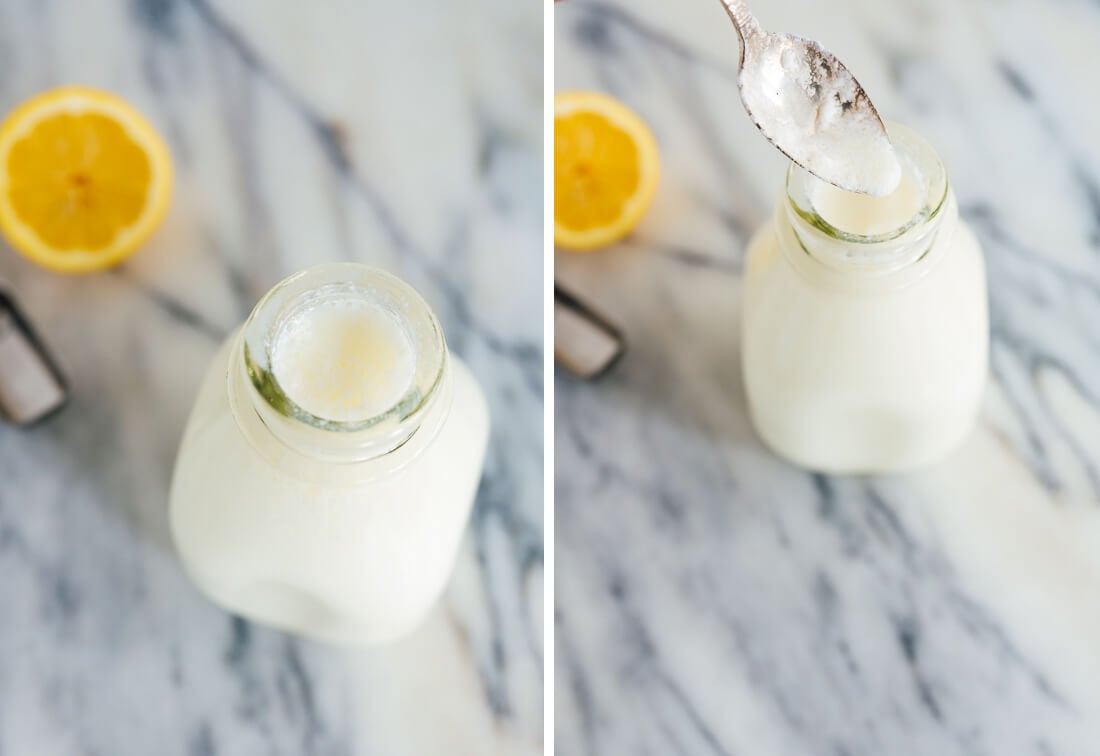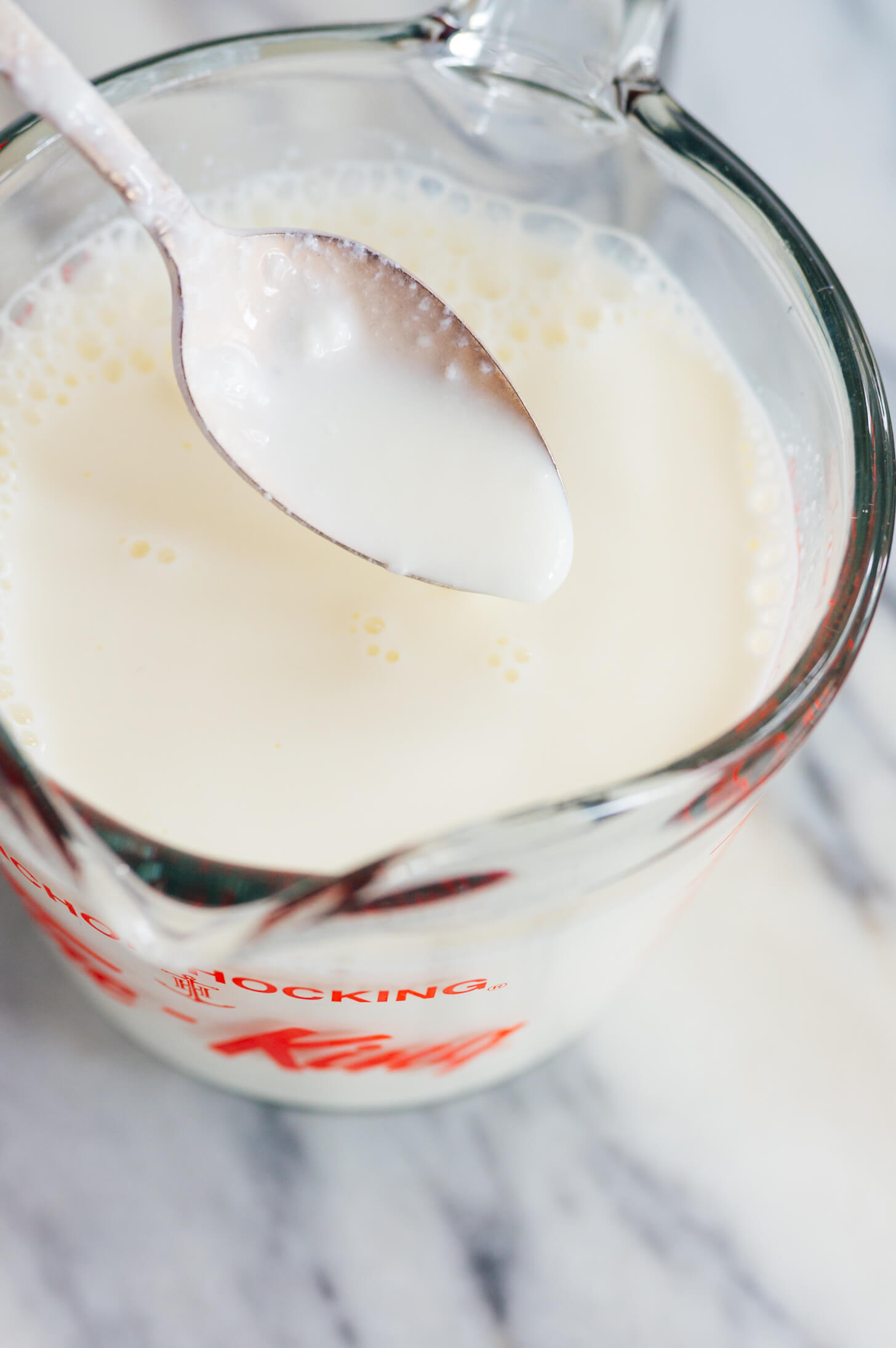How to Make Buttermilk
Make buttermilk for your baked goods with this 5-minute recipe. Combine your milk of choice and vinegar or lemon juice (quantities provided).
Updated by Kathryne Taylor on August 29, 2024
111Comments
Jump to recipeLet’s talk about buttermilk for a minute. Buttermilk in baked goods yields wonderfully fluffy, light and tangy results. You’ve seen me use buttermilk in muffin and pancake recipes, and I’m super excited to share a simple cake recipe that calls for buttermilk later this week.
So, what is buttermilk? Traditionally, buttermilk was the fermented liquid leftover after churning cream into butter. These days, store-bought buttermilk is typically made from milk with added lactic bacteria, which produce lactic acid.
Contrary to what its name and thickened texture suggest, buttermilk is not buttery and is relatively low in fat. Store-bought options are usually about on par with whole milk, though reduced-fat options exist.
Why do we use buttermilk instead of plain milk? Tangy flavor aside, the acid present in buttermilk helps counteract baking soda, which is basic. Baking soda on its own is quite bitter—it needs both acidity and liquid to taste and function properly.
Buttermilk acts similarly to sour cream or yogurt, which are thicker cultured dairy products. Since buttermilk is thinner, I typically use about two-thirds cup buttermilk in place of one cup sour cream or yogurt.
Today, we’re talking about acidified buttermilk, or milk with added acid (vinegar or lemon juice) so it acts as buttermilk. This is the perfect substitute for your baking projects when you don’t have buttermilk on hand.
I love use this trick because it saves me from buying buttermilk, since I never seem to use up a full bottle in time! This method is also convenient if you follow a dairy-free or vegan diet, because you can make buttermilk with any type of milk.
How to Make Buttermilk
Basic ratio: 1 tablespoon vinegar or lemon juice + 1 cup milk of choice = 1 cup buttermilk
To make buttermilk, simply measure the vinegar or lemon juice into a liquid measuring cup. Fill the cup with milk up to the 1-cup line (so yes, you’ll be using just a tiny bit less than 1 full cup milk). Stir to combine, and let the mixture rest for at least 5 to 10 minutes before using.
The final texture should appear somewhat separated at the top, with some light curdling. Even if you don’t see a significant change in appearance, the acidity is present and your buttermilk should work as designed.
Following this ratio, you can make exactly as much buttermilk as you need. Keep in mind that one tablespoon is the equivalent of three teaspoons. Here are some alternate yields for your convenience:
- 1/4 cup buttermilk: 3/4 teaspoon vinegar or lemon juice + 1/4 cup milk of choice
- 1/3 cup buttermilk: 1 teaspoon vinegar or lemon juice + 1/3 cup milk of choice
- 1/2 cup buttermilk: 1 1/2 teaspoons vinegar or lemon juice + 1/2 cup milk of choice
- 2/3 cup buttermilk: 2 teaspoons vinegar or lemon juice + 2/3 cup milk of choice
- 3/4 cup buttermilk: scant 2 1/2 teaspoons vinegar or lemon juice + 3/4 cup milk of choice
Watch How to Make Buttermilk
Recipes Using Buttermilk
- Blueberry Honey Bran Muffins
- Buckwheat Pancakes
- Healthy Zucchini Muffins
- Nectarine Cupcakes
- Simple Blueberry Cake
- Whole Wheat Pancakes
More Convenient Baking Components
How to Make Buttermilk
Make buttermilk for your baked goods with this 5-minute recipe. Simply combine your milk of choice and vinegar or lemon juice. You can easily make this buttermilk vegan/dairy free/nut free depending on your choice of milk. Recipe as written yields 1 cup buttermilk. The basic ratio is 1 tablespoon vinegar to 1 cup milk; see post for alternate yields.
Ingredients
- 1 tablespoon vinegar* or lemon juice
- 1 cup milk of choice**
Instructions
- Measure the vinegar or lemon juice into a liquid measuring cup.
- Fill the measuring cup to the 1-cup mark with milk. Stir and let the mixture rest for at least 5 to 10 minutes. You will see some light separation in the milk (curdling). Use as instructed.
Notes
*Vinegar options: Choose from a clear or almost clear vinegar, such as plain distilled vinegar, apple cider vinegar, rice vinegar or Champagne vinegar. They are all similar enough in acidity levels to work well, and I can’t discern a difference in the final flavor of the baked good depending on which is used.
**Milk options: Choose from cow’s milk, nut milk coconut milk, soy milk, oat milk—any milk will do, really!
Make it dairy free/vegan: Choose your favorite dairy free/vegan milk.
Make it nut free: Be sure to use a milk that is nut free.
Make it soy free: Be sure to use a milk that is soy free.
Nutrition
The information shown is an estimate provided by an online nutrition calculator. It should not be considered a substitute for a professional nutritionist’s advice. See our full nutrition disclosure here.





















I made these amazing banana muffins. So moist and the crumble on top just finishes it off! My husband says that they are his top pick. These will be my go to from now on. DELICIOUS AND EASY TO MAKE
Thank you for sharing, Kerry! I appreciate your review.
How long can this be stored in the fridge?? I just made a batch of cornbread, yummmm. No comment about storage though. Thanks
I don’t have a storage suggestion as I haven’t tried it. Sorry!
I have followed your receipe and it turned out really goo. I used Apple cider vinegar for buttermilk and first time home made.
Thank you so much
You’re welcome, Win!
Currently waiting for the results! In my country, you can hardly find any buttermilk in stores! This is my first time ever using this alternative and hoping it’ll turn out great for the lemon pound cake I’m planning to bake later. I usually bake cookies, cheesecakes, “kek batik” and brownies.. so making a pound cake is really new to me! I will tell the results later after my partner tastes it. I really do hope she’ll like it.